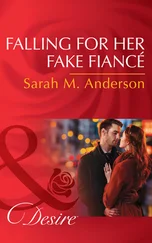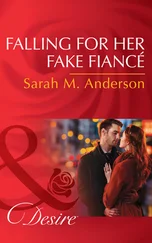They filled my glass and assured me that I might proceed without fear of disappointing them.
I accordingly explained the process of reasoning whereby I had concluded, some days before, that Isabella and the Reverend Maurice had both died of camphor poisoning and that Sir Robert’s illness had been similarly caused; that the camphor had been contained in medicine which they were taking for their colds; and that it was Daphne who had added it.
“Hang on a minute,” said Cantrip. “If your theory is that everyone was poisoned by Daphne, isn’t it a bit of a snag that she’s been poisoned as well?”
“By no means,” I said. “I had never imagined that Daphne poisoned anyone deliberately. We must remember that Daphne thought of herself as a disciple of Isabella and that Isabella claimed, among other things, to be a healer. I have no doubt that her medical supplies included camphor: it is made, as I dare say you know, from an oriental tree — she would have regarded it as a natural remedy. She, I imagine, would have used it with discretion, but Daphne was clearly the sort of person who believes that if one teaspoonful is good for you two teaspoonfuls will be twice as good — remember what everyone said about her cooking. So when she used Isabella’s recipe for treating coughs and colds, she tried to improve on it by adding more camphor.”
“Yes,” said Julia. “Yes, I can imagine her doing that.”
“And last week, I suppose, she found that she herself was suffering from a cold, as so many people are at this time of year. What could be more natural than to take a large dose of the medicine she had such faith in? I see no point in taking any action in the matter — the inquest will no doubt establish that that was how she died.”
“But she didn’t,” said Julia.
“Didn’t? My dear Julia,” I said, a little disconcerted, “whatever do you mean?”
“Didn’t die of camphor poisoning.” Julia looked apologetic. “My aunt’s doctor is a friend of the pathologist who did the postmortem. He says that the poison she died of was hemlock.”
For a moment, I confess, I was rather taken aback. The explanation, however, was not far to seek: having previously used camphor, Daphne had decided to experiment with hemlock. Though how even she could have thought of hemlock as a plant noted for its therapeutic qualities—
“You don’t suppose,” said Selena, “that she might have done it on purpose? If you’re right, Hilary, then she was responsible for the deaths of the two people to whom she was most attached. If she suddenly realised what she’d done—”
Selena paused, evidently more distressed by this idea than by the fact of Daphne’s death. So indeed were we all — despair somehow seems more poignant than death.
“I gather,” said Julia, “that the police have ruled out suicide. There was no suicide note. And they didn’t find the container which held the poison, so it looks as if she washed the glass or whatever it was in and put it tidily away. They say that if she’d done it on purpose she wouldn’t have bothered to do that — she’d just have sat and waited for the poison to take effect.”
We sipped our wine and ordered our salads, cheered, perhaps irrationally, by the thought that Daphne had not died by choice.
“It’s curious, isn’t it,” said Selena, “how everything to do with this business seems to turn on whether someone would have washed a glass? Now that I come to think of it, I still don’t know who washed the glasses on the night Isabella died. I wouldn’t have said that Sir Robert was at all the sort of man to do it — people have been washing glasses for him all his life. Do you think it was Katharine Tavistock?”
“No,” I said a little absentmindedly. “No, I think not. I asked her when we were walking back from the Museum whether she’d ever met Isabella and she told me that she hadn’t. During Sir Robert’s consultations she always stayed in the car.”
A slightly inconvenient thought now occurred to me. There emerged from somewhere in the depths of my unconscious mind a recollection of the moment, many months before, when I had first learnt the name of Selena’s merchant banking client. I had seen Sir Robert’s photograph on the City page of the Scuttle , over a report of a dinner at which, on the previous evening, he had been the guest of honour. Searching my memory with a certain reluctance, I was compelled to admit that this had occurred on the morning of the day on which we heard the news of Isabella’s death: if the report was to be relied on, Sir Robert could not have been her visitor.
“Hilary,” said Selena, “this way madness lies. You established last week, to our complete satisfaction, that the man in the black Mercedes was Sir Robert Renfrew. If you’re now going to try to persuade us that there was also an entirely different man in an entirely different Mercedes, I shall put my hands over my ears and refuse to listen.”
“My dear Selena,” I said, “I would be as averse as you are to reaching any such conclusion. I think the explanation must be that Isabella’s visitor on the evening of her death was not, after all, the man in the black Mercedes.”
No one, so far as we knew, had actually seen the Mercedes on the evening of Isabella’s death. Regina had not: she had inferred its presence from the fact that Daphne had said that her aunt was giving a Personal Reading. The Reverend Maurice had not: he had expressly said that by the time he took Daphne home there was no sign of it. There were no other witnesses.
“So what you’re saying is,” said Cantrip with some indignation, “that all this time we’ve been worrying about a chap in a Mercedes washing up the glasses we needn’t have been worrying at all, because it wasn’t him but some other chap in a secondhand Toyota who probably does it every day?”
“That,” I said, “is entirely possible. We know nothing whatever about Isabella’s visitor on the evening of her death. We know only that he, or indeed she, was not Sir Robert Renfrew, and therefore not the man in the black Mercedes.”
The question was in any case immaterial: the identity of Isabella’s visitor on the night of her death did not affect the theory that I had proposed. And yet I was unable to dismiss it from my mind. I felt as one does when, after sending an article for publication in some learned journal, one comes across some reference one has overlooked. I fell for a time into an abstraction.
When my attention returned to the conversation around me, it was no longer concerned with Daphne but with a case in which Cantrip and Ragwort had that morning been appearing against each other in the High Court. Following some rather severe hints from the judge that it ought to be settled, they had conscientiously tried to reach an equitable compromise. Their efforts had been thwarted, however, by the absurd obstinacy of one of their clients — Cantrip’s according to Ragwort, Ragwort’s according to Cantrip. This meant, among other unhappy consequences, that they were unable to linger over lunch: they had to be back in court at two o’clock.
“Ah well,” said Selena, “into each life some rain must fall. Console yourselves with the thought that good times are just around the corner. Any day now we’ll have our bookshelves and life will be wonderful.”
“I wouldn’t bet on it if I were you,” said Cantrip, evidently resolved on pessimism. “The way I see it is, now Terry’s in the money, he’s not going to be too fussed about getting our bookshelves finished. He’ll probably go off on a world cruise or something and forget all about it.”
“In the money?” said Ragwort, looking surprised. “My dear Cantrip, whatever do you mean?”
“Well, he’s the rezzy benny under Isabella’s will, isn’t he? And that means that now the Daphne bird’s snuffed it he’ll get the lot. And that means he’ll get the Rectory. And according to Julia’s aunt Reg the Rectory’s worth between three and four hundred thousand smackers. Which is what I call not at all bad going. And now Daphne’s not around to make trouble, he won’t have any problem getting the cash from the Reverend’s estate as well. So I’d say he was pretty nicely fixed.”
Читать дальше












